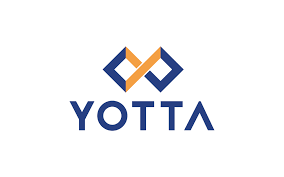Data Center
Colocation
Data Center
The Evolving Landscape Of Data Center Delivery In India

The increase in internet users, the digital transformation of enterprises, and the Indian government’s push towards a digital economy have all fuelled demand for robust data centers infrastructure. With the increasing demand for cloud services, big data analytics, and high-performance computing, data centers in India have emerged as critical infrastructure supporting the digital economy.
The evolution is characterised by a shift towards more robust and scalable facilities, incorporating advanced technologies such as edge computing and artificial intelligence. Government initiatives, coupled with strategic partnerships between global tech giants and local players, have played a pivotal role in shaping this landscape. The focus is not only on expanding capacity but also on enhancing energy efficiency and sustainability, aligning with global trends.
The key attributes that define successful data center delivery are as follows:
1. Design and Engineering: The design phase is a critical juncture in data center construction, where collaboration between architects, engineers, and IT professionals is paramount. Successful projects prioritise the creation of a design that seamlessly integrates the architectural aspects with the technical requirements of a data center. This includes considerations for layout optimisation, airflow management, energy efficiency, and the implementation of cutting-edge technologies such as modular design and high-density server configurations. The collaborative design process lays the groundwork for a facility that not only meets operational needs but is also resilient and adaptable.
2. Infrastructure Development: The success of data centers hinges on robust infrastructure and seamless connectivity. India’s ambitious infrastructure projects, such as the BharatNet initiative and the development of Smart Cities, are improving the overall connectivity landscape. Proximity to major network points, reliable power supply, and advanced telecommunications infrastructure are pivotal considerations in selecting suitable locations for data center development.
3. Risk Mitigation and Contingency Planning: Effective risk management is a key attribute of successful data center construction. This involves identifying potential risks, ranging from natural disasters to cybersecurity threats, and implementing robust mitigation strategies. Organisations must conduct thorough risk assessments, establish contingency plans, and invest in security measures to protect the facility and the sensitive data it houses. This proactive approach to risk management ensures the resilience and security of the data center in the face of unforeseen challenges.
4. Security Measures: With the growing reliance on data, security is a paramount concern for data center operators. Cybersecurity threats are becoming more sophisticated, and data breaches can have severe consequences. Protecting sensitive information from unauthorised access, ensuring data integrity, and complying with data protection regulations are constant challenges.
5. Costs and Economic Viability: The upfront and operational costs associated with building and maintaining data centers can be substantial. Balancing the need for cutting-edge technology with cost-effectiveness is a perpetual challenge for organizations. Moreover, the economic viability of data centers depends on factors such as energy prices, hardware costs, and the evolving landscape of technological innovation.
6. Regulatory Compliances: Data centers are subject to a myriad of regulations and compliance standards, varying across geographical locations. Navigating this complex regulatory landscape requires meticulous planning and a deep understanding of local and international laws. From data sovereignty issues to privacy regulations, data center operators must ensure strict adherence to compliance requirements, adding an additional layer of complexity to the development process.
Colocation and Its Benefits:
Colocation represents a pragmatic approach wherein organisations lease space within an existing data center facility operated by a third party. This route provides a cost-effective solution with quicker deployment times, as clients leverage shared infrastructure, security, and operational services. Colocation Data Centers are designed to provide high levels of reliability and uptime. They typically have redundant power sources, backup generators, and advanced cooling systems to ensure that servers and infrastructure remain operational even in the event of power outages or equipment failures.
This reliability is crucial for businesses that require continuous access to their applications and data. It also offers scalability, allowing businesses to easily scale their IT infrastructure up or down based on their needs. As a company grows, it can quickly add more servers and resources without the constraints of physical space limitations. This is particularly advantageous for businesses with fluctuating or unpredictable workloads.
Furthermore, the flexibility afforded by colocation enables businesses to focus on their core functions and strategic objectives, as they can offload the complexities associated with the construction and day-to-day management of a dedicated data center. This allows companies to redirect their efforts toward driving innovation, enhancing customer experiences, and staying competitive in an ever-evolving digital landscape. Hence, colocation emerges as not just a practical solution but a strategic enabler for businesses navigating the complexities of today’s digital economy.




















